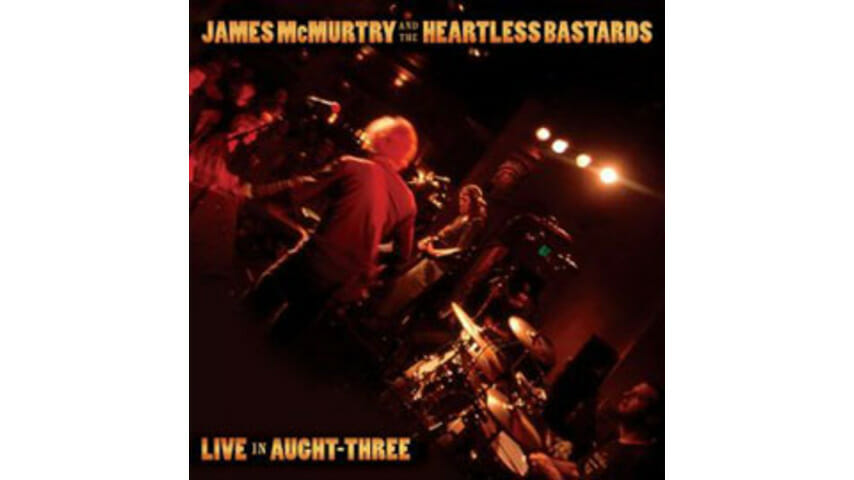James McMurtry & The Heartless Bastards

“I used to think I was an artist … come to find out I’m a beer salesman,” croaks James McMurtry to a lively Nashville crowd in his dry-as-dust deadpan, never shying away from his role as one of the most legitimate stepchildren of the outlaw movement. Such is the life of a genuine Texas troubadour, and McMurtry has never cut an ambiguous profile in that regard, his seven albums reveling in the kind of smartly evocative and slyly probing songwriting that characterized a generation of down-and-out bards. And as any troubadour worth his salt lives and dies on the stage, it’s only appropriate that he have a live album to document his authentic muses in their naked glory.
Live in Aught-Three captures one such moment (actually, a number of moments spread out over four shows). Having inherited his father screenwriter Larry McMurtry’s eye for cinematic detail, he’s a master in shrinking a fully fleshed narrative down for the small screen of the story-song, making the stage—with its attendant vulnerability—the perfect setting for his craft. Here, first and foremost, McMurtry serves the function of storyteller, the lurching blues stomp of “60 Acres” and the uneasily biographical “Levelland” breathing with a deep humanity and believable authority, touching on something both tangibly immediate and unsettlingly universal. As always, his Nick Cave-via-Kris Kristofferson phrasing lends his songs an even greater sober confidence, rendering the smart wordplay of “No More Buffalo” and the agitated guitars and threats of retribution coloring “Red Dress” all the more direct and cautionary.
-

-

-

-

-

-

-

-

-

-

-

-

-

-

-

-

-

-

-

-

-

-

-

-

-

-

-

-

-

-

-

-

-

-

-

-

-

-

-

-








































